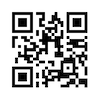Scholar Spotlight on Marcus Moberg: Mediatization and the Evangelical Church of Finland
In today’s society, religion has become dependent on new media. However, every religion is different and interacts in different ways with technology.
Marcus Moberg, Academy Research Fellow at the Academy of Finland, University of Turku and Adjunct Professor of Comparative Religion at Abo Akademi University, explored the relationship between mediatization and religion in the article, “Mediatization and the technologization of discourse: Exploring official discourse on the Internet and the information and communication technology within the Evangelical Church of Finland.” This article discusses the impact of the Internet and advances in information and communications technology (ICTs) surrounding the Evangelical Church of Finland (ELCF). Moberg’s goal is to highlight how “developments in new digital media technologies have become strongly dominated by a very particular set of discourses.”
This article outlines key concepts of a “social analysis-oriented discourse analytic approach” and provides details regarding the relationship between the ELCF and its use of the Internet and ICTs. The ELCF has sustained a slow, progressive decline in members since the early 1970s, but has tried to reconfigure its self with the use of the Internet and ICTs.
Moberg believes that “changes in our ways of talking about things will, moreover, also change our perceptions about what we can do and how we can act vis-à-vis these things. In this view, then, all forms of social life, social interactions, and social relationships is fundamentally discursive. In this view, it is first and foremost through language and discourse that we construct certain phenomena or states of affairs as meaningful in particular ways, and it is against the background of these constructions that our actions also need to be understood. This applies equally to the discourses and actions of individuals and organizations (including religious organizations).”
Moberg’s aim was to portray how religious communities are forced to use available languages within new media when discussing their own media use. Overall, this article argues that the advances of the Internet and ICTs have led to an increase of discursive developments regarding social and cultural implications. It underlines the idea that the Internet and ICTs have the potential to deepen “our understanding of the changing discursive practices of religious institutions in an age of digital media.”
For the link to the article, click here: http://journals.sagepub.com/doi/abs/10.1177/1461444816663701





